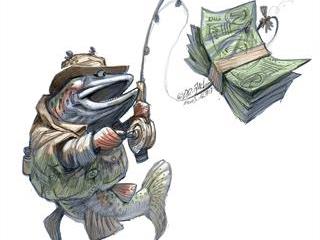
Even before the COVID-19 pandemic, South Africa was experiencing a food crisis, but this was deepened by the lockdown. Low-income households bore the brunt: three million jobs were lost; two out of every five adults reported that their households had lost their main source of income; existing government-funded feeding schemes closed; and social grants from government were slow to be paid out.
All of these factors had a grave effect on food security in the country: 47% of adults reported that their households ran out of money to buy food in April 2020 and, while this figure declined in May and June 2020, they were still well above pre-COVID-19 levels.
READ How COVID-19 changed agricultural policy
However, the pandemic has not just shed light on existing problems; it has also identified entities that might be able help to tackle these issues in the longer term: civil society organisations (CSOs).
In South Africa, these groups performed a heroic task during the initial COVID-19 crisis, supplying millions of meals to people in need. In the Western Cape, for example, CSOs provided more than half of the food aid distributed in the first few months of the lockdown, reaching 5,2 million people.
Without these organisations, the humanitarian crisis would have been far greater. However, their work is ongoing, as the need for emergency food aid has continued.
This is because CSOs didn’t only respond to the effects of the pandemic, but also dealt with the fundamental inequalities of a food system that is designed to make profits for large corporate retailers and food-processing companies rather than provide the majority of people with safe and nutritious food.
READ COVID-19 and the rise of organic farming
Based on our research, we believe that CSOs should be drawn more formally into food governance. There are three main reasons for our argument.
First, South African CSOs have shown that they are willing and able to hold government to account. Second, they are ideally placed to contribute their local knowledge, as they have an intimate understanding of the specific needs of the most vulnerable in their communities.
Third, they can play a major role in education and information-sharing about the food system and nutrition, as well as performing agricultural and nutritional training.
How it worked
Our research shows that CSOs relied heavily on their existing networks and relationships with communities when planning to distribute food.
These relationships helped them identify vulnerable people who might otherwise have slipped through the cracks and gone hungry. Partnerships were key; we found that larger organisations often helped to channel resources to smaller, more informal, community-based ones.
However, this collaboration largely did not extend to CSOs’ relationships with government departments.
In general, these organisations found it difficult to work with government. This came down to a mismatch of government’s culture of rigid compliance and box-ticking with the realities that organisations were seeing on the ground.
But there were a few bright spots: some organisations developed valuable relationships with individuals in provincial government.
It is clear from our research that CSOs already play a vital and varied role in South African society and governance. But it’s important that they be seen as more than service-delivery mechanisms, as this would allow them to play a bigger part in shaping a better food system.
There is international precedent for this approach. In the city of Belo Horizonte, Brazil, CSOs worked closely with government departments to design and implement programmes that reduced hunger. In the same way, South African CSOs need to be given a seat at the decision-making table and empowered to help drive long-term change.
Long-term change
There are a few ways in which this can be achieved. South Africa’s 2017 National Food and Nutrition Security Plan stipulated that a food and nutrition security council must be created.
This process must be accelerated, and civil society representatives must be among the members. Similar councils could be set up at provincial and local government level.
It is also critical that short-term solutions, such as emergency feeding, be linked with the long-term change of the system. This can be achieved by helping food system stakeholders, such as government officials, ‘see’ and understand the system as a whole.
Community kitchens are a valuable way to do this. They bring people together not simply to grow, cook and share food, but to deliberate on how to solve food insecurity, and recognise how it is shaped by other forms of inequality.
CSOs should also be connected to the debates that help shape decisions about food and the policies that affect it.
Crucially, they should be allowed to operate in an enabling environment. They should not be controlled through heavy-handed regulation or stifled by red tape. There are well-established government programmes, aimed at the private sector, for reducing this red tape or improving the ease of doing business, and similar initiatives would benefit CSOs.
Examples of effective collaboration between CSOs and local and provincial government were seen during the push to deliver food during the COVID- 19 crisis. This approach needs to be built on in order for it to become a lasting legacy of the crisis.
But building partnerships and enabling environments takes time and resources. COVID-19 has shown that, outside times of crisis, government needs to invest in developing and strengthening relationships that it can call upon in times of need.
Indeed, building partnerships requires effort from both sides, and this must be sustained year after year. It is important not to squander the relationships that have been built over the past 18 months in the spirit of ‘doing things differently’ after the crisis.
The Western Cape Food Forum has demonstrated that government and civil society can work together in a structured way to improve governance outcomes. COVID- 19 hotspot teams are another example of where unprecedented levels of collaboration between government and civil society were achieved, and this could be built on.
CSOs have accomplished great things, but we should take heed of the warning given by Adam Habib, veteran researcher into civil society in South Africa. He writes that we should be careful not to fall into the trap of celebrating these efforts as a representation of the vibrancy of South African society.
“Indeed, they should be recognised for what they are, which is survivalist responses of poor and marginalised people who have had no alternative in the face of a retreating state that refuses to meet its socio-economic obligations to its citizenry.”
To link short-term solutions to food insecurity (and the CSOs that provide them) with long-term change, it is critical that the full range of CSOs and their functions are appreciated and supported by government and other partners.
We must move away from a system in which CSOs are locked into (only) service delivery, like hamsters on a wheel. A plurality of civil society and the diverse sets of relationships that it engenders with government (both adversarial and collaborative) is a much-needed element of healthy food democracy and local food governance that should be enabled and embraced by government.
The views expressed in our weekly opinion piece do not necessarily reflect those of Farmer’s Weekly.
This article is an edited excerpt from Adelle, C and Haywood, A. 2021. ‘Engaging Civil Society Organisations in Food Governance in the Western Cape: Reflections from emergency food relief during COVID’. Food Security SA Working Paper Series.











